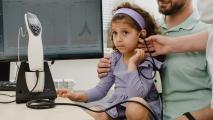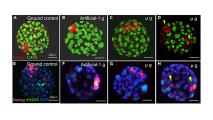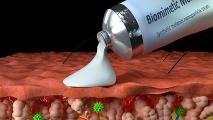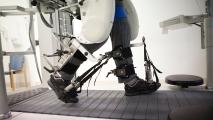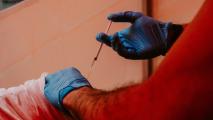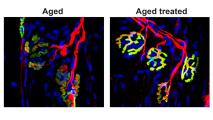
Biotech
Human history has been all but defined by death and disease, plague and pandemic. Advancements in 20th century medicine changed all of that. Now advancements in 21st century medicine promise to go even further. Could we bring about an end to disease? Reverse aging? Give hearing to the deaf and sight to the blind? The answer may be yes. And soon.
More
Mindfulness: New age craze or science-backed solution?
Research shows mindfulness can be an effective wellness practice, yet the effect sizes found in studies tend to be moderate.
Insomnia and mental disorders are linked, but exactly how is still a mystery
The relationship between insomnia and mental disorders is complex. It’s not just a case of “which comes first”?
New gene therapy reverses hearing loss in 4 children
A new gene therapy being trialed in China was able to reverse hearing loss in 4 of the 5 children to receive it.
Mouse embryos grown in space for the first time
A mouse experiment on the International Space Station suggests humans might one day be able to reproduce in space.
New “super melanin” protects and heals skin
A “super-charged” synthetic melanin is even better at protecting the skin and healing damage than the natural kind.
The psychedelic DMT causes the brain to become hyperconnected, scans reveal
Researchers gave 20 healthy subjects potent, intravenous doses of the psychedelic DMT and observed their brains. Here’s what they found.
Capsaicin: Could the compound that gives chili peppers their heat treat diabetes and obesity?
Capsaicin, the compound that gives peppers their burn, could help with diabetes and obesity, but only at an uncomfortably high dose.
Gold-laced gel could help you recover from a major muscle injury
A combination of electrical stimulation and a gold nanoparticle-laced hydrogel could one day help people recover from major muscle injuries.
How AI played an instrumental role in making mRNA vaccines
Years before Moderna created an effective mRNA vaccine against COVID, the company put into place AI systems to accelerate the research process.
Ex-NASA engineer Mark Rober created the world’s smallest Nerf gun — from DNA
Mark Rober and Pallav Kosuri created a Nerf gun so tiny they had to build it out of DNA. This DNA “origami” has the potential to revolutionize engineering.
Dumbing down or wising up: how will generative AI change the way we think?
Artificial intelligence tools are now managing huge swathes of information on our behalf, potentially changing what and how we think.
A short history of insomnia and how we became obsessed with sleep
Insomnia is big business and getting bigger. When did sleep become so important, so elusive, and so expensive?
Sex life discovery raises IVF hope for endangered purple cauliflower soft coral
The purple cauliflower soft coral Dendronephthya australis, now listed as an endangered species, has a new hope of survival with IVF.
Blocking this one protein could strengthen muscles
Stanford researchers have figured out how a therapy that blocks a single protein can reverse age-related muscle loss in mice.
CRISPR cure for HIV now tested in 3 people
Excision BioTherapeutics has shared data from the first human clinical trial of a CRISPR cure for HIV. Here’s what we know — and don’t know.
“Living pharmacies” could mean you never forget to take your meds again
The US government is funding the development of “living pharmacies,” implants containing cells that release medications on demand.
Cardio improves cognitive function & mental health. Here’s the best way to do it at home.
While many people do cardio exercise to keep physically fit, research shows cardio also improves cognitive function and mental health.
MIT’s soft fiber implants could offer drug-free pain relief
An innovative new way to use fiber-pulses to inhibit pain.
Why 20 women were just deliberately exposed to Zika
In a first-of-its-kind human challenge trial, Johns Hopkins University researchers deliberately exposed 20 women to the Zika virus.
New “anti-CRISPR” discovered in viruses
A new “anti-CRISPR” system could help us control gene-editing tech and battle antibiotic-resistant superbugs.
Subscribe to the newsletter













